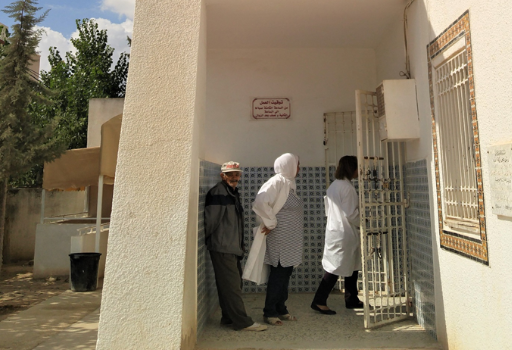By Jessica Spagnolo (School of Public Health, IRSPUM, Université de Montréal)
Global mental health aims to increase access to mental health care and to encourage the social inclusion of people living with mental ill health by promoting services as close as possible to people’s communities. This view also aligns with the Declaration of Alma-Ata, an affirmation in advancing the health of all people including those living with mental health disorders. In October 2018, the global community gathered at the Global Conference on Primary Health Care to renew its commitment to building strong primary health care systems by celebrating the 40th anniversary of the Declaration of Alma-Ata and the launch of the Astana Declaration. Global leaders present at the conference committed to strengthening health systems by further investing in the infrastructure and workforce within primary health care in order to provide proximity health and mental health services.
Almost one year later, on this 2019 World Mental Health Day, we are still discussing and reinforcing efforts to improve access to mental health services worldwide, for example, via primary health care settings. Primary health care is an important setting in global mental health. First, it is a promising way to increase access to needed, timely, comprehensive, and effective mental health services that are affordable. Second, given the association between mental health disorders and communicable and non-communicable diseases, vertical (stand-alone) programs traditionally favoured in the mental health field are not as effective as integrated approaches. Last, with the strategic position of primary healthcare providers in many primary health care settings around the globe, the World Health Organization (WHO) has recognized mental health as a core component of their training.
In line with such evidence and international momentum, our research team (i.e., a collaboration between the School of Public Health at Université de Montréal, members of the Ministry of Health in Tunisia, the WHO office in Tunisia, and the Montreal WHO-PAHO Collaborating Center for Research and Training in Mental Health) offered a training based on the Mental Health Gap Action Program (mhGAP) Intervention Guide (IG) (version 1.0) and developed by the WHO to primary care physicians working in the Greater Tunis area of Tunisia. They were trained in effective ways to detect, diagnose, and treat depression, psychosis, self-harm/suicide, and substance use disorders. We used an exploratory trial (which included a randomized controlled trial) to evaluate the impact of the training on primary care physicians’ mental health knowledge, attitudes, and self-efficacy scores, as well as their self-reported practice. We evaluated the training program over the short-term (6 weeks post-training) and over the long-term (18 months post-training).
Key results from this paper include:
- The training had a statistically significant short-term impact on mental health knowledge, attitudes, and self-efficacy scores, but not on self-reported practice.
- When comparing pre-training results and results 18 months after training, changes in mental health knowledge, attitudes, and self-efficacy scores were maintained.
- Primary care physicians reported a decrease in self-reported referral rates to specialized health services 18 months after training in comparison to pre-training.
The implementation and evaluation of the mhGAP-IG training in Tunisia was novel. First, to our knowledge, it was the first evaluation of a mental health training program implemented in Tunisia. Second, it was one of the first research programs to implement and evaluate the mhGAP-IG training in a French-speaking nation. Last, it was one of the few identified peer-reviewed initiatives to evaluate the mhGAP-IG training using a randomized controlled trial and to our knowledge the first to assess its impact beyond 10 months.
While results are promising, our experience taught us that while mental health training is key in building individual capacity, primary healthcare providers work in a health context that may facilitate or challenge training uptake and their involvement in mental health care. Identifying these contextual factors is also pertinent to ensure that untreated symptoms of mental ill health are addressed. We identified these factors with complementary, qualitative research which may be used to help explain findings generated by the impact evaluation and to foster discussions with Tunisian policy-makers.
We hope that these complementary research methods and findings may also be useful to the global community in its efforts to further improve mental health care in primary health care settings worldwide. We also hope that this blog will encourage discussions on the Health Policy and Planning Debated platform and in celebration of World Mental Health Day around the following topics:
- What lessons have other research teams learned from their work on the implementation and evaluation of mental health training programs (whether in high- middle- or low-income countries)?
- What types of dissemination activities have been used to translate implementation and evaluation findings into policies that aim to further promote mental health care in primary health care settings?
Access the paper on Health Policy and Planning
Image credit: Jessica Spagnolo











